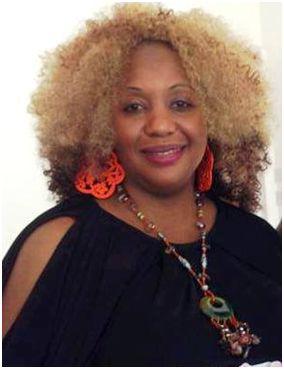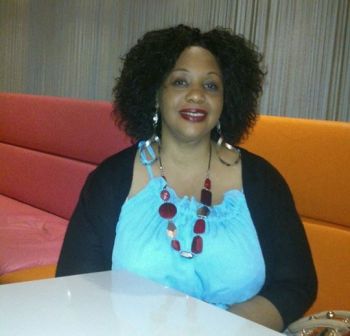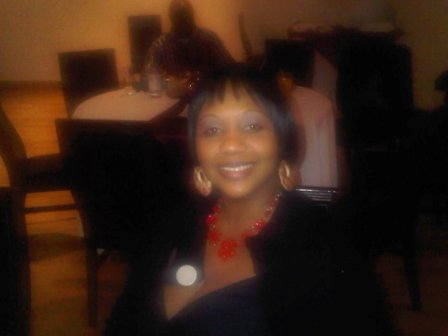Girl power is no longer a politically correct addendum but a compulsory economic necessity
Introduction– Sierra Leonean women face all sorts of obstacles when it comes to setting up their own businesses. A combination of cultural prejudices and harsh economic realities join hands to make life particularly difficult for our ladies.
SOME of the numerous barriers and constraints which make it difficult for women to do business in Sierra Leone include limited access to finance, social inequality, entrenched cultural and traditional practices, socio-cultural, prejudices, restricted access to educational technology, legal obstacles and institutionalised ignorance.
Despite years of gradual progress, the challenges Sierra Leonean women face remain herculean and the obstacles are still formidable. Right across the board, there are all kinds of long-established barriers that have gradually grown into entrenched attitudes, that are practically the law of the land.
As the country seeks to catch up with the rest of the world economically, most of these barriers are going to have to come down if the Sierra Leonean economy is to expand. When about half the population is female, having 50% of the workforce incapacitated is tantamount to operating with one hand tied behind your back.
Some of these prejudices are so institutionalised that it will take decades if not longer to eradicate them as they have become entrenched in the psyche of most Sierra Leoneans. Here are some of examples of these long-established barriers:
Legal and regulatory barriers: These include registration of business names, obtaining licenses, adhering to statutory requirements and contracting. Due to the aforementioned factors, women entrepreneurs are the least prepared to engage in contractual processes key to doing business in Sierra Leone.
Contracts involve long legal processes such as leasing, drawing up business contracts, legal representation and other aspects which place the woman entrepreneur in a disadvantaged position. Most small and medium enterprises (SMEs) find these processes lengthy and time consuming, thus they cannot grow or expand their enterprises.
Gender disparities in education and training: In Sierra Leone, the educational level of most women entrepreneurs is very low, creating a barrier to them accessing training and other business development services. For example, many Sierra Leone women come from disadvantaged social backgrounds and are not well informed about business processes and operations and therefore fail to take full advantage of available opportunities.
Financial and credit availability and accessibility: Financial availability and accessibility is cited in many studies as being one of the major barriers and constraints to growth. In most cases the factors that inhibit credit availability to SME’S especially women include the lack of start-up capital, inadequate awareness of existing credit schemes, high interest rates, lengthy and vigorous procedures for loan applications and a lack of collateral security for finance.
Low levels of ICT and social media: In a rapidly-changing world, any community or country that has not got good levels of information and communication technology (ICT) cannot compete.
Technology: Appropriate technology is one that is suitable to the environment, culture and level of development. In Sierra Leone, there is a general lack of appropriate technology available
Limited entrepreneurial culture and management skills: There is also a general lack of an entrepreneurial culture in Sierra Leone the available labour is generally low skilled.
Women’s heavier household financial and time burden: Many women are income poor, yet have to provide for their families. Competing financial needs between family and business has become one of the major constraints to enterprise growth. With many women being poor, the little income earned from the business is sometimes used for what appears to be urgent family requirements, irrespective of why it was set aside. This has resulted in a reduction of the capital invested and hence curtails further growth.
Asset distribution disparities: Family and marital status dictate the ownership of assets and property in favour of men. Culturally, ownership of land and fixed assets is the man’s domain. In Sierra Leone, access to and ownership of land for women is, therefore, important to poverty alleviation and entrepreneurship, as it impacts on collateral for loans and other financial needs.
To overcome these obstacles, several drastic steps need to be taken, including the establishment of a development bank to cater for the SMEs with accent on women businesses. Sierra Leone also needs to establish regional development agencies with section dealing with women issues.
In addition, the country needs to enhance and improve the capacities of the technical training institutions to improve the skills base and good practices. There is also a need to lobby and campaign for better government policies social and economic policies.
Implementing such radical and rigour reforms, however, will require single-minded determination on the part of the government. Basically, it requires a political leadership prepared to defy the status quo and implement an unpopular set of policies with long-term goals, which the majority of the population may not appreciate for now.
To make them work, however, some sort of sensitisation campaign would have to be launched prior to their implementation, to educate Sierra Leoneans about the long term benefits of such actions. When 52% of our population is female according to the last census, it is suicidal and tantamount to a waste of time to leave the women behind in any attempt to move forward economically.
Hopefully, the government will be brave enough to bite the bullet and take the necessary steps required to bring Sierra Leonean business guidelines up to scratch with the international norms. This not a cosmetic luxury but an absolute necessity that is compulsory to enhance Sierra Leone’s economic growth.
By Zainab Tunkara Clarkson
About the author:
Zainab is currently working on a Gender Development Programme. She is a Public Health Trainer and the CEO of Community Health Initiative Empowerment Foundation (CHIEF). She is also a Founding partner of VOSL. She has a BA degree in Business and Marketing and a postgraduate degree in International Development Management.
Zainab has worked extensively in private, public and voluntary sector areas across UK in Senior Management positions (non-profit sector). Zainab currently serves as a Chairlady and Trustee on the Board of the Greenwich Inclusion Project, as well as AFRUCA – Africans Unite against Child Abuse (UK).
She is also a Board Member of Teach For Sierra Leone and Greenwich Black and Minority Ethnic Forum. Furthermore Zainab is the Director of Marketing and Gender/ Children Editor for Voices from the Diaspora Radio Show.
Stay with Sierra Express Media, for your trusted place in news!
© 2013, https:. All rights reserved.







loss supplements
/
Hola! I’ve Ьeen reading your site for a long time now and
7th May 2014finally ǥgot tɦe courage to go ahead and give youu a shouyt oսt from Porter Tx!
Just wanted to tell you keep up the fantastic job!